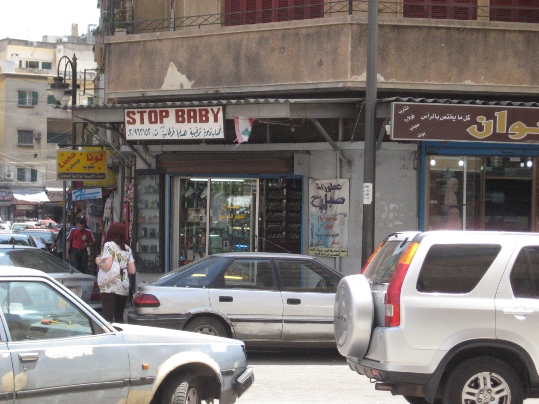My husband is officially a /
Alternatively titled: My atheist husband is no longer a Sunni. When we got married in Cyprus, our papers said ‘Walid, Lebanese Sunni’ and ‘Nicolien, Dutch None’. Because the Cypriots take all the information from the official documents, and Lebanese official documents automatically state a person’s sect (whether they are religious believers or not is irrelevant), my poor atheist husband will forever have a marriage certificate that classifies him as a Sunni.
(Or Muslim, as it occurs on some papers, as opposed to Shi’a, for whom the Lebanese State does not use the word Muslim, interestingly enough.)
Unless we get married again, because then his papers will say ‘Walid, Lebanese /’: yesterday, he officially removed his sect from his papers. He will no longer be forced to identify as something he doesn’t believe in, that his father didn’t even believe in, passed on to him along paternal lines just because the Lebanese State refuses to make a civil law for things that can also be arranged by religious decrees.
Until recently, it was impossible to have any papers that did not state one’s sect/religion, until the former Minister of Interior Ziad Baroud decided that it was permitted to have it taken off (and replaced by a “/” sign). This despite the legal problems that will probably occur when the people who have removed their sect want to get married in Lebanon, or be buried in Lebanon, or other such personal matters which are up until now only arranged by religious institutions and then recognized by the State. The Minister didn’t have time to print official applications, but he made the required text available to all Mokhtars (a Mokhtar is the person you have to go to in Lebanon to identify yourself in order to do any and all governmental procedures – usually a guy with an office on a street-corner close to your house, or, as with one of my friends, in the back of a gas-station), thus opening up the possibility to keep one’s religion separate from the State.
Jamil, a friend of ours, was the first to do it. Whether he believes or not, he doesn’t think religion has any place on official documents, so he went through the remarkably short procedure and had his sect removed – despite his mother’s fears that this was his first step on his way to becoming Shi’a (quite possibly her biggest nightmare).
Because Walid’s Mokhtar didn’t want to participate in the procedure (giving excuse after excuse about the lack of official applications), he went to Jamil’s Mokhtar, who gladly obliged and wrote the required yada yada yada on a paper, cheered on by two men who were waiting and thought that everybody should have their sect removed.
Not so in the Ministry of Interior. On his way to the office to get the last required signature and be forever de-sunni-fied, a friendly government worker tried to warn Walid of the dangers involved in carrying out this operation. ‘You will not be allowed to marry in a religious court!’ he pleaded, his hand on Walid’s arm. ‘I’m already married, in a civil ceremony’, was the answer. ‘But you won’t be able to be buried in a Muslim cemetery when you die!’ the distressed employee tried one more time, just before he opened the door. It couldn’t change Walid’s mind; he went in and had his paper signed.
I’m proud to say that my husband is now officially a “/”.


